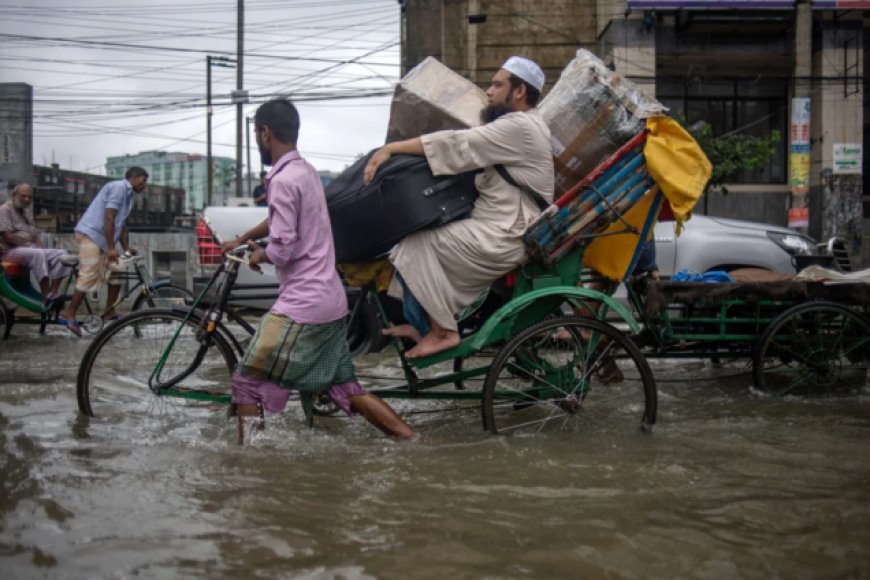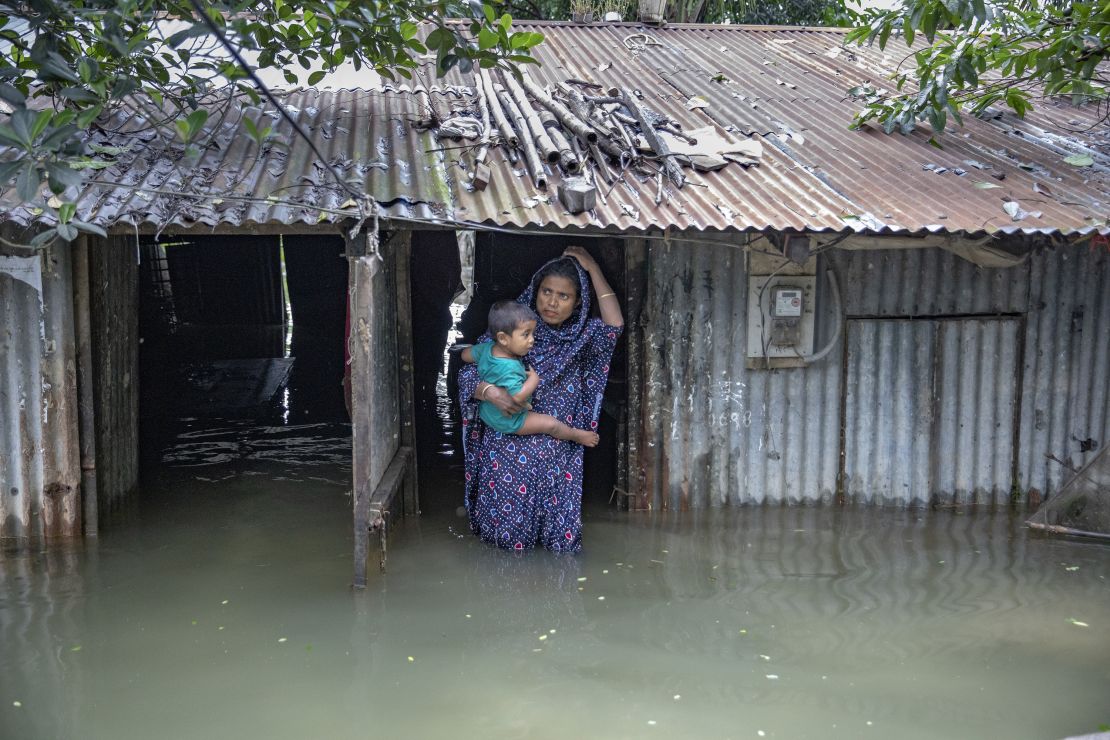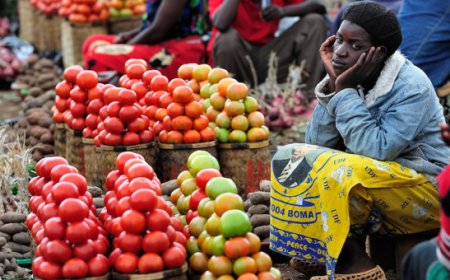Extensive Flooding Strands 1.8 Million in Northeast Bangladesh
Heavy monsoon rains have led to severe flooding in northeast Bangladesh, displacing 1.8 million people. The region faces critical food and water shortages, with extensive damage to homes, farmland, and infrastructure.

Severe flooding in northeast Bangladesh has stranded about 1.8 million people following weeks of heavy monsoon rains that have submerged homes and devastated farmland. State media and humanitarian agencies report that large areas of Sylhet city and the nearby town of Sunamganj are underwater for the second time in less than a month. The prolonged torrential rain and upstream water runoff from India have caused four rivers to swell beyond their danger marks, leading to widespread flooding.
Villagers in the hardest-hit areas of Sylhet wade through chest-deep water, trying to protect their belongings from the muddy waters. Local media reports express concern for those trapped by floodwaters, facing food shortages and lack of clean water. Approximately 964,000 people in Sylhet and 792,000 in Sunamganj are affected, with over 6,000 shelters set up for the displaced, according to the state-run news agency Bangladesh Sangbad Sangstha (BSS).
UNICEF has highlighted the plight of 772,000 children in urgent need of assistance, with over 800 schools flooded and 500 more used as shelters. “As waters rise, children are the most vulnerable,” said Sheldon Yett, UNICEF Representative to Bangladesh. BRAC, an international development organization, is providing emergency food and health support to affected families, stating that around 2.25 million people have been impacted by the flash floods, leaving 12,000 without power.
Khondoker Golam Tawhid, head of BRAC’s Disaster Risk Management Program, emphasized the increasing danger of flooding in Bangladesh, exacerbated by climate change. Fish farmers in the region have faced significant economic losses, with local media reporting damages exceeding $11.4 million.

Bangladesh, prone to seasonal rains, flooding, and cyclones, is among the world’s most vulnerable countries to climate change impacts. Studies predict that by 2050, 13 million people in Bangladesh could become climate migrants, with severe flooding potentially causing GDP to fall by as much as 9%.
The latest floods come just weeks after Tropical Cyclone Remal caused widespread flooding in late May, affecting about 5 million people. Save the Children’s Sultana Begum warned that such extreme weather events are becoming more frequent and severe, significantly impacting children’s lives.
Monsoon rains have also affected southern Bangladesh, where about a million Rohingya refugees live in the world’s largest refugee camps. At least 10 people, including three children, died from mudslides and heavy rainfall in these camps. Over 8,000 people in 33 camps have been impacted, with more than 1,000 shelters destroyed or damaged.
The Indian state of Assam has also been hit by landslides and flooding, affecting over 4 million people and causing at least 31 deaths since May 29.
Some relief for northeast Bangladesh is in sight as rains have begun to ease, with local media reporting that floodwaters are starting to recede. The Bangladesh Water Development Board noted a decrease in water levels of major rivers in the region, with a trend expected to continue if further rains hold off, potentially improving the flood situation over the next 72 hours.
What's Your Reaction?






































































